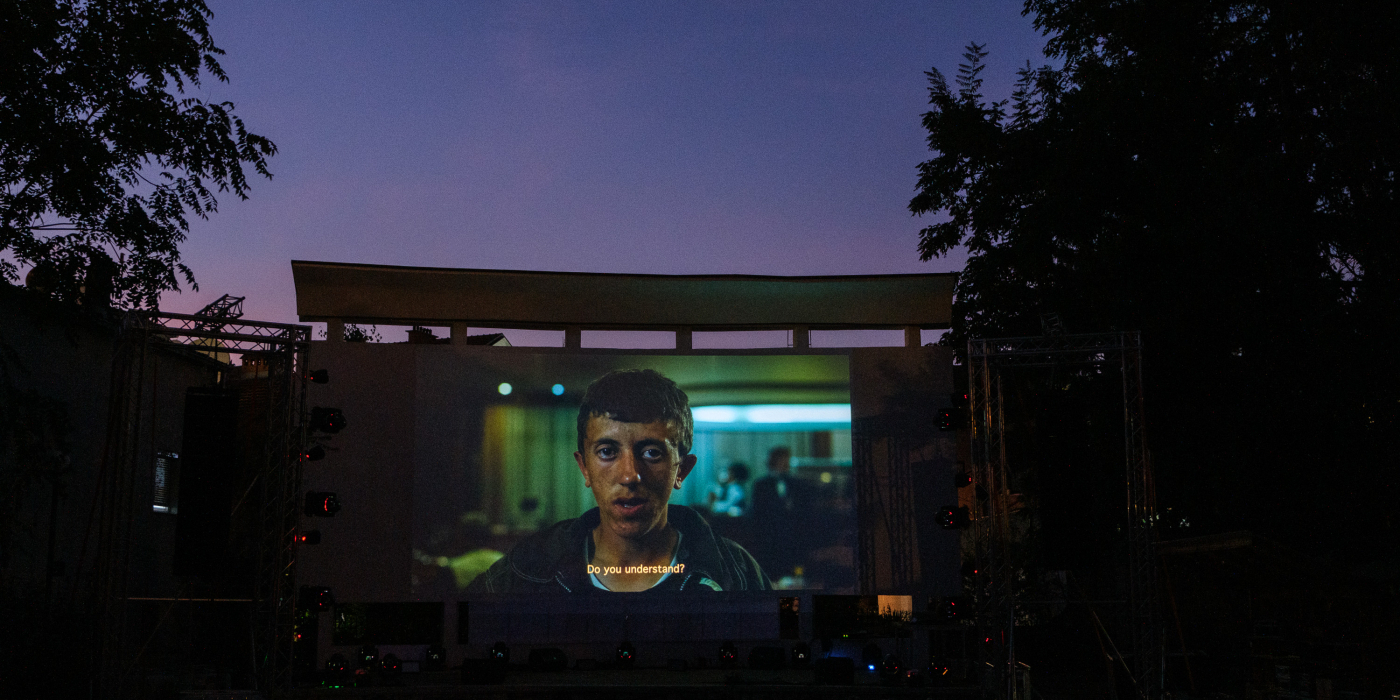06/08/2024
Over the last 15 years, director Birgitte Stærmose has been on a peculiar venture, after meeting the cast since they were very young in the streets of Prizren, selling cigarettes or phone cards. Last night, she was in Prizren with the main characters whose lives pan out in this documentary, which is stated to be a performative testament to the war that lives on in people.
We follow the stories of Xhevahire, Shpresim, Gëzim and Besnik in the past, present and future while they speak in first person, straight to the camera, portraying their sentiments, emotions, how they elaborate on human connections and their profound struggles deriving from the aftermath of war.
We continuously see the characters speaking directly to the camera, confiding in the audience their inner train thoughts and what they learned so harshly in life. When surrounded by people, as they go on to follow their tireless daily activity, deprived from sleep and food, they speak softly, in whispers, while making sense of the relationships they have in have, the way they communicate with what surrounds them in a heartfelt and touching manner.
These four roam the streets of Prizren, while being aware of what life could have been but also showing an undying hope for a better day. They do recognize the difficulties, they know what it has done to them, and as they often say, it is hard to put those experiences in words, but still try to find the light that will lead to a better future for the people in their lives.
At Kino Lumbardhi, a numerous audience filled the seats, in the open air cinema following up these emotional stories. We welcomed the participants who in the Q&A, they expressed how thankful and proud they were for this film to be shown in Prizren, as it was crucial to them to share their stories with their own audience in the city they know from inch to inch.
The director of Afterwar, Stærmose talked a little more about the method and progression of the documentary following up “Out of Love”, she started to re-follow the lives of the cast and with the curiosity of how to narrate dramatic histories in the moment while hoping that everything would go well. She spoke to the struggles and the intensity of narrating these fates and how crucial it was for her to depict these stories, while emphasizing that all this process was done in close collaboration with the members of the cast.
This was a very emotional night at Kino Lumbardhi, marking once again the importance of telling stories, however tough they are. Afterwar competes in the Balkan Dox Category and everyone interested can see it on Aug. 10, starting from 15:00 at Doku Kino.
By: Blerina Kanxha
Photo: Luka Knežević Strika



